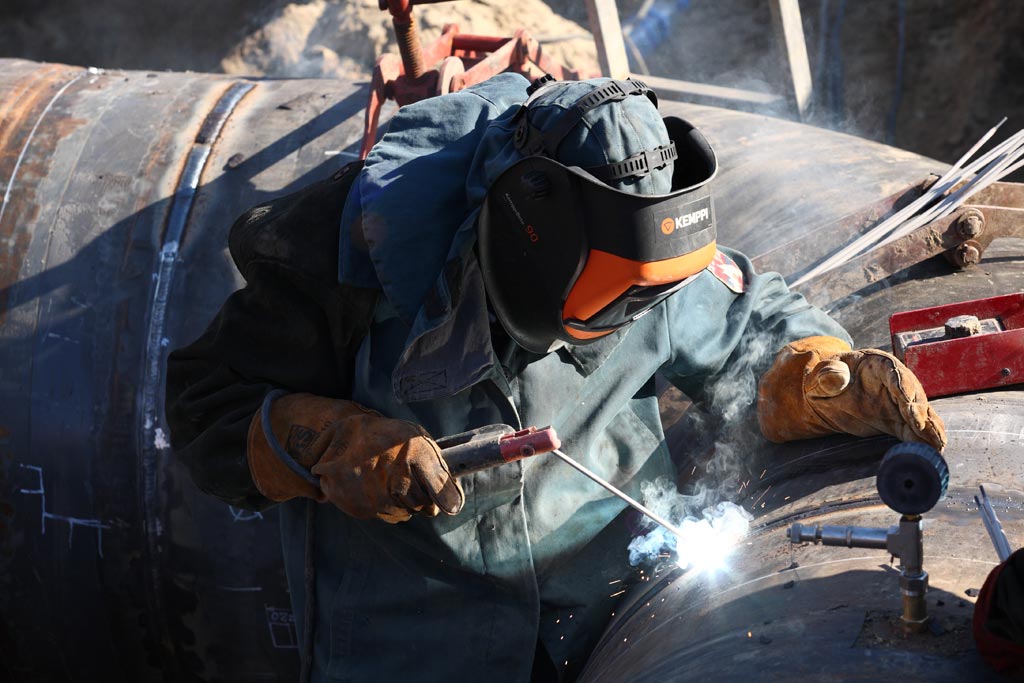CPC Pipeline Expansion in Doubt After Leadership Shakeup
MOSCOW (Reuters) — The CPC pipeline, essential to ship 1.4 million of light Caspian barrels per day (bpd) to the Mediterranean markets, is facing a shareholder standoff after its board was dissolved, potentially hitting further expansion plans, three sources said.
The Caspian Pipeline Consortium (CPC), the largest privately-operated route connecting oil fields in Kazakhstan and Russia with the Black Sea, is co-owned by a number of shareholders with a history of failing to reach agreement.
Disagreements between Russia’s oil pipeline monopoly Transneft, Kazakhstan and other shareholders have capped expansion plans in the past. CPC needs to add another 150,000 bpd by 2024 to accommodate growing oil output in the region.
In early March, Transneft blocked election of the new board of directors, after failing to win support from other shareholders for its proposal to change a marine support company in the CPC terminal near Novorossiisk, sources familiar with the details said.
Transneft, which owns a 7% stake in CPC, proposed to replace a long-serving Smit Lamnalco marine operator with its own unit, Transneft-Service, which other shareholders believed lacked the proper experience, the sources said.
“Main concern was that Transneft-Service doesn’t have proper qualifications and vessels to serve the CPC terminal,” one of the sources said.
Russia also holds another 24% stake in CPC via its state property management agency, Rosimushestvo, which together with Transneft’s stake makes Moscow the pipeline’s biggest shareholder with a combined 31% stake.
CPC operations, including expansion, are financed by its shareholders, among which are U.S. oil majors Chevron and ExxonMobil, Russia’s Rosneft and Lukoil , Italy’s Eni and some others.
“It’s an odd situation. We’re left with no board of directors. In such turbulent times as now we may need to make quick decisions - this is impossible right now”, the second source, who works for one of the CPC shareholders, said.
Chevron, Kazmunaigaz, Lukoil, Rosneft, Rosimushestvo, Transneft and CPC itself did not immediately reply to Reuters requests for comment. Shell and Eni declined comment. ExxonMobil officials were not available for comment.
The sources said that CPC has called for an extraordinary shareholder meeting in early April to fix the board issue but the fresh corporate battle may turn into a longer one.
“There is no understanding between Transneft and others. If there is no compromise soon, it may lead to even bigger conflict,” the third source said. “This is certainly not good for CPC and the planned projects.”
Related News
Related News

- Kinder Morgan Proposes 290-Mile Gas Pipeline Expansion Spanning Three States
- Enbridge Plans 86-Mile Pipeline Expansion, Bringing 850 Workers to Northern B.C.
- Intensity, Rainbow Energy to Build 344-Mile Gas Pipeline Across North Dakota
- Tallgrass to Build New Permian-to-Rockies Pipeline, Targets 2028 Startup with 2.4 Bcf Capacity
- U.S. Moves to Block Enterprise Products’ Exports to China Over Security Risk
- U.S. Pipeline Expansion to Add 99 Bcf/d, Mostly for LNG Export, Report Finds
- A Systematic Approach To Ensuring Pipeline Integrity
- US Poised to Become Net Exporter of Crude Oil in 2023
- EIG’s MidOcean Energy Acquires 20% Stake in Peru LNG, Including 254-Mile Pipeline
- Enbridge Sells $511 Million Stake in Westcoast Pipeline to Indigenous Alliance





Comments